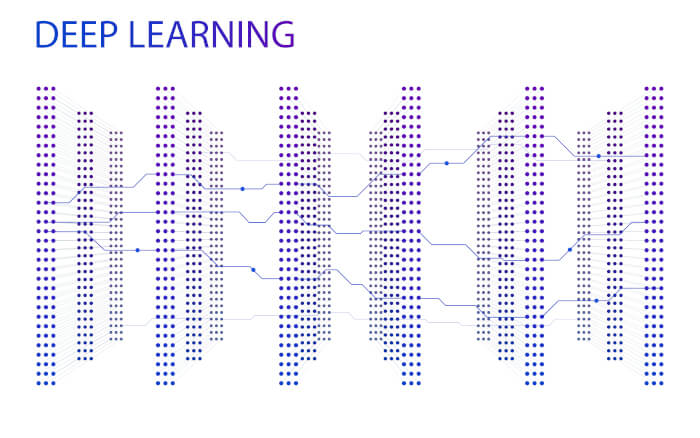PyTorch is an open source Python package that provides two high-level features:
- Tensor computation (like NumPy) to use the power of GPUs.
- Deep Neural Networks built on a tape-based autodiff system that offers flexibility and speed.
Torch is a tensor library for manipulating multidimensional matrices of data employed in machine learning and many other math-intensive applications.
PyTorch provides libraries for basic tensor manipulation on CPUs or GPUs, a built-in neural network library, model training utilities, and a multiprocessing library that can work with shared memory.
Reuse popular Python packages such as NumPy, SciPy and Cython to extend PyTorch when needed.
Features include:
- Intuitive, linear in thought and easy to use.
- Excellent Python integration, imperative style, simplicity of the API and options.
- PyTorch’s Tensor API is designed to be straightforward and with minimal abstractions.
- GPU-ready tensor library – provides Tensors (ndarray) that can live either on the CPU or the GPU.
- Autograd module – a tape-based automatic differentiation library that supports all differentiable Tensor operations in torch. It uses a technique called reverse-mode auto-differentiation, which allows you to change the way your network behaves arbitrarily with zero lag or overhead. This technique is especially powerful when building neural networks in order to save time on one epoch by calculating differentiation of the parameters at the forward pass itself.
- Optim module – implements various optimization algorithms used for building neural networks.
- nn module – a neural networks library deeply integrated with autograd designed for maximum flexibility.
- Minimal framework overhead. The software integrates acceleration libraries such as Intel MKL and NVIDIA (cuDNN, NCCL) to maximize speed.
- Efficient memory usage.
Website: pytorch.org
Support: Blog, GitHub Code Repository
Developer: PyTorch core team
License: Standard BSD-3 license
PyTorch is written in Python. Learn Python with our recommended free books and free tutorials.
Return to Deep Learning with Python
| Popular series | |
|---|---|
| The largest compilation of the best free and open source software in the universe. Each article is supplied with a legendary ratings chart helping you to make informed decisions. | |
| Hundreds of in-depth reviews offering our unbiased and expert opinion on software. We offer helpful and impartial information. | |
| The Big List of Active Linux Distros is a large compilation of actively developed Linux distributions. | |
| Replace proprietary software with open source alternatives: Google, Microsoft, Apple, Adobe, IBM, Autodesk, Oracle, Atlassian, Corel, Cisco, Intuit, and SAS. | |
| Awesome Free Linux Games Tools showcases a series of tools that making gaming on Linux a more pleasurable experience. This is a new series. | |
| Machine Learning explores practical applications of machine learning and deep learning from a Linux perspective. We've written reviews of more than 40 self-hosted apps. All are free and open source. | |
| New to Linux? Read our Linux for Starters series. We start right at the basics and teach you everything you need to know to get started with Linux. | |
| Alternatives to popular CLI tools showcases essential tools that are modern replacements for core Linux utilities. | |
| Essential Linux system tools focuses on small, indispensable utilities, useful for system administrators as well as regular users. | |
| Linux utilities to maximise your productivity. Small, indispensable tools, useful for anyone running a Linux machine. | |
| Surveys popular streaming services from a Linux perspective: Amazon Music Unlimited, Myuzi, Spotify, Deezer, Tidal. | |
| Saving Money with Linux looks at how you can reduce your energy bills running Linux. | |
| Home computers became commonplace in the 1980s. Emulate home computers including the Commodore 64, Amiga, Atari ST, ZX81, Amstrad CPC, and ZX Spectrum. | |
| Now and Then examines how promising open source software fared over the years. It can be a bumpy ride. | |
| Linux at Home looks at a range of home activities where Linux can play its part, making the most of our time at home, keeping active and engaged. | |
| Linux Candy reveals the lighter side of Linux. Have some fun and escape from the daily drudgery. | |
| Getting Started with Docker helps you master Docker, a set of platform as a service products that delivers software in packages called containers. | |
| Best Free Android Apps. We showcase free Android apps that are definitely worth downloading. There's a strict eligibility criteria for inclusion in this series. | |
| These best free books accelerate your learning of every programming language. Learn a new language today! | |
| These free tutorials offer the perfect tonic to our free programming books series. | |
| Linux Around The World showcases usergroups that are relevant to Linux enthusiasts. Great ways to meet up with fellow enthusiasts. | |
| Stars and Stripes is an occasional series looking at the impact of Linux in the USA. | |
